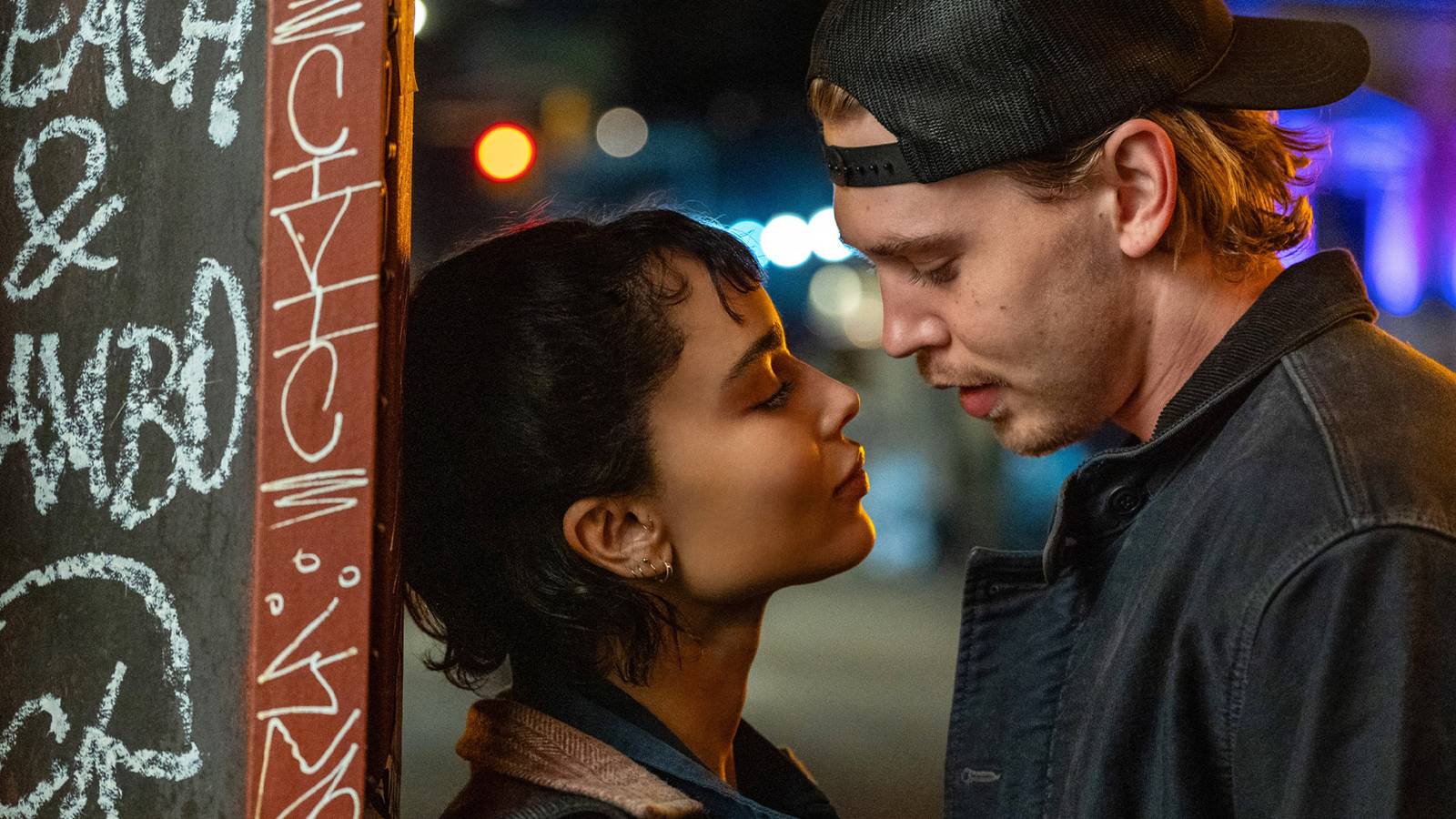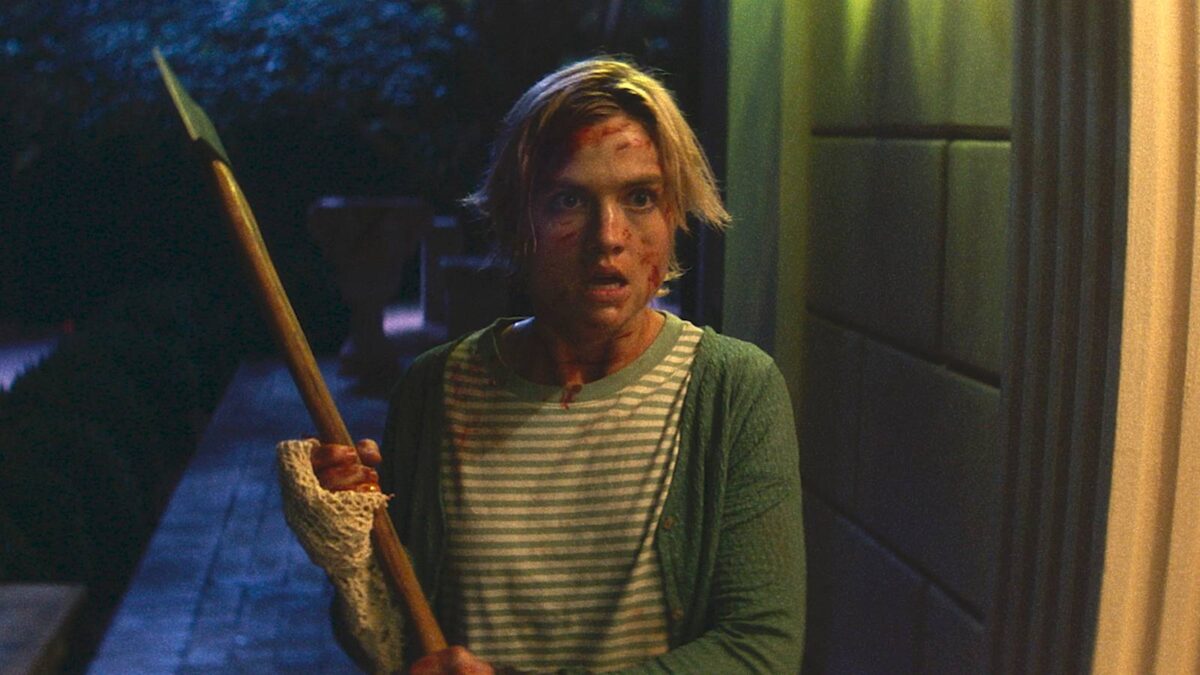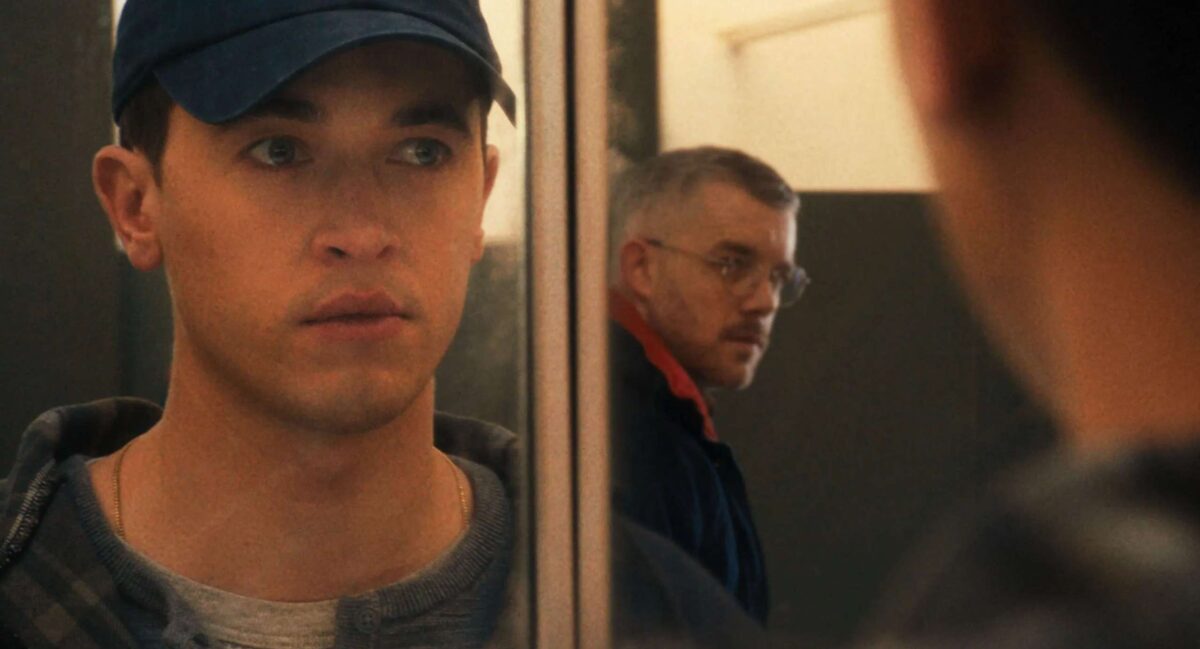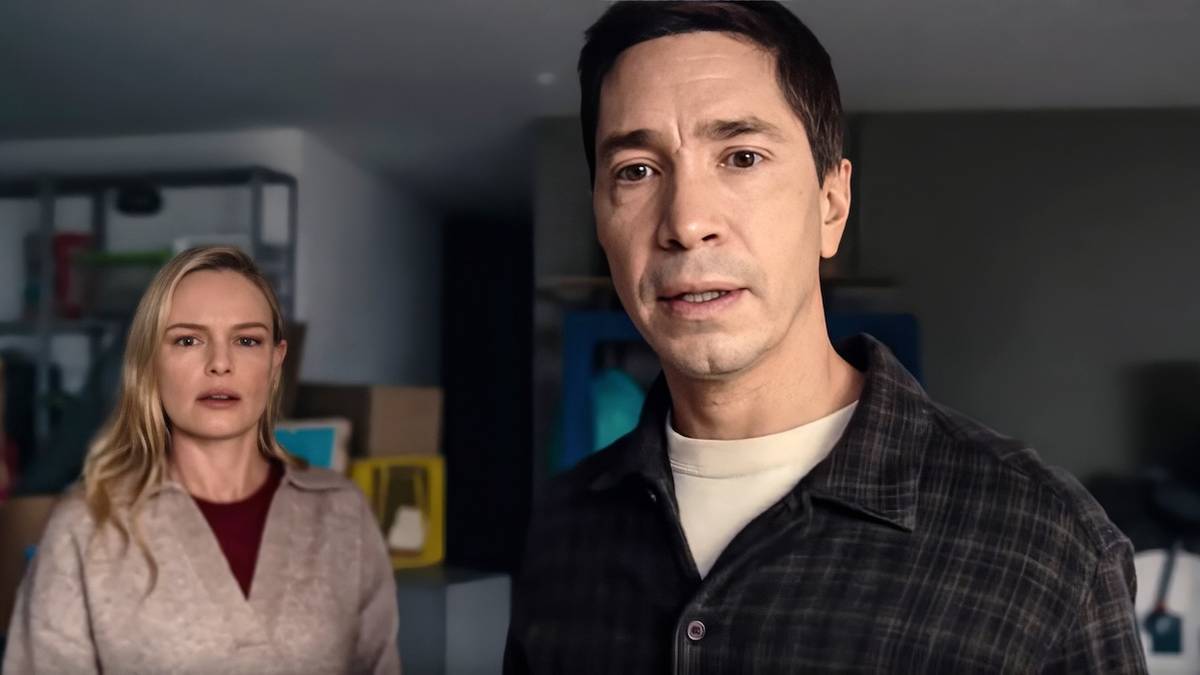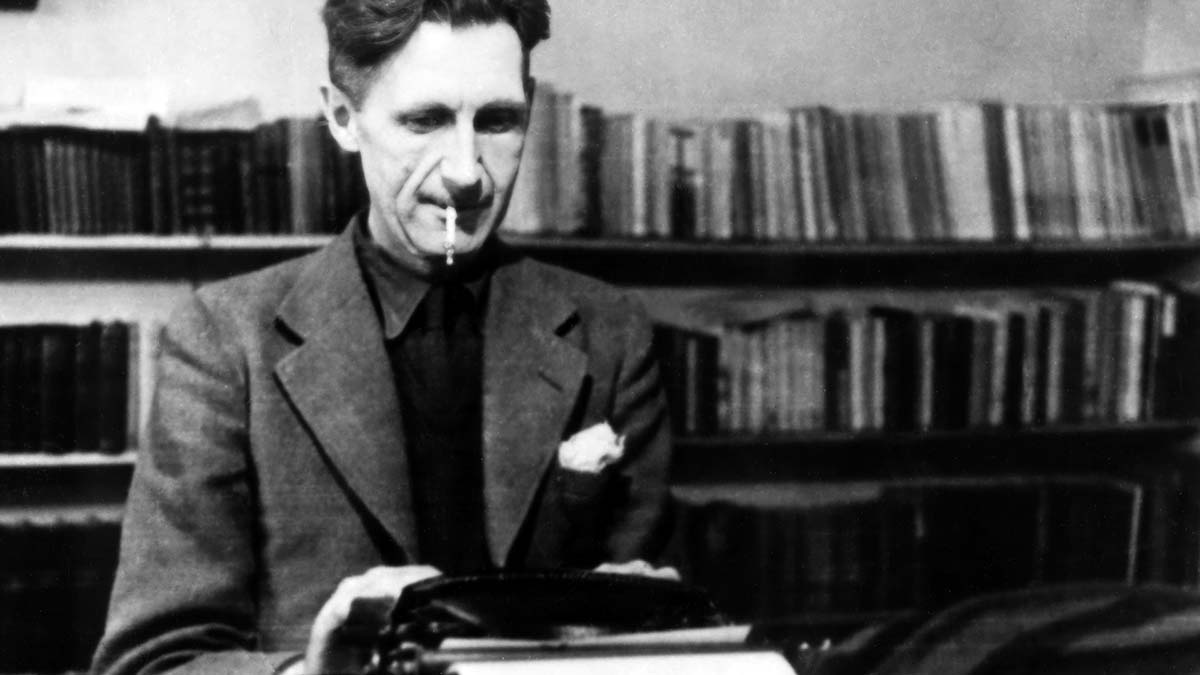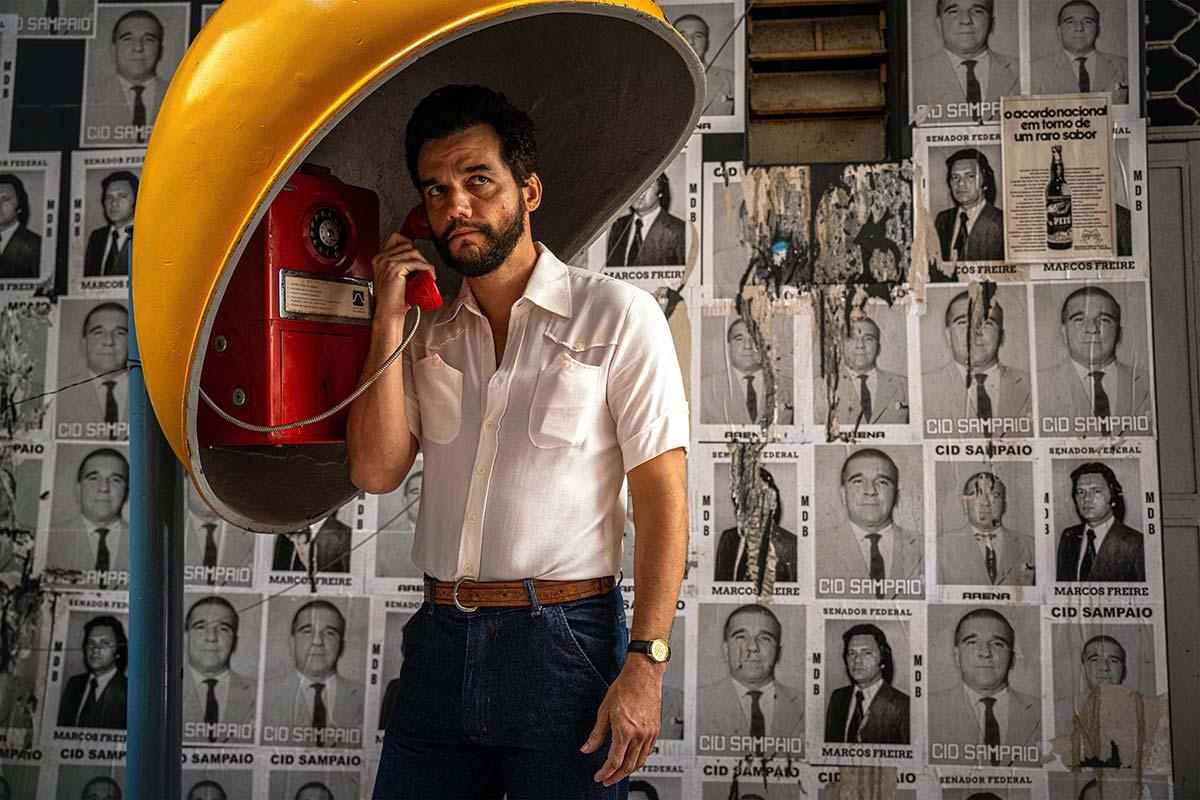
Wagner Moura Commands Stunning Brazilian Crime Drama Steeped In History & A Palpable Adoration for Cinema [Cannes]
May 19, 2025
The screams from an audience watching “The Omen” in 1977 can be heard throughout the Cinema São Luiz in the northeastern Brazilian city of Recife. They reach a private room near the projection booth where an average man, Marcelo (Wagner Moura), has just learned that his life is in real danger. His conversation with a noble benefactor helping persecuted people like him during the South American country’s military dictatorship is being recorded, and so are the terrified reactions that echo at a nearby distance.
Decades into the future, those sounds will reverberate, both Marcelo’s confessional and the panicked shrieks from excited movie theater patrons, like an infinite mirror reflecting it all across time, which is often what films do: they crystallize a moment in time and project it for us from the past. They are portals connected to the beyond, allowing us to mine meaning based on our present worries. Hence why we often measure their relevance based on whether they “stood the test of time,” meaning, “Are they still of value today?”
READ MORE: Cannes 2025 Most Anticipated Films: ‘Sentimental Value,’ ‘Eddington,’ ‘Die My Love’
An imposing masterpiece steeped in history and a palpable adoration for cinema, Kleber Mendonça Filho’s “The Secret Agent” stands as the director’s most ambitiously monumental effort in a career with no missteps thus far. The only Latin American production in the main competition at Cannes this year, it’s a film whose artistic prowess grows in estimation the more familiar the viewer is with his accomplished body of work. All of Mendonça Filho’s aesthetic, genre proclivities, and ideological concerns coalesce in this larger period canvas.
The horror-tinged tension and quotidian class anxieties of his debut “Neighboring Sounds,” the righteous defiance against voracious capitalism in defense of memory that propels “Aquarius,” the deliberate gruesomeness and geopolitical stakes of “Bacurau,” and the profound exploration of cinemas as spiritual spaces that he conducts in his documentary “Pictures of Ghosts,” all play their part into making “The Secret Agent” an expansive triumph.
Notably, the aforementioned Cinema São Luiz, central to “Pictures of Ghosts” as one of the movie palaces the director frequented growing up and where he now programs, serves as a central, breathtaking location throughout “The Secret Agent.” In turn, the director also brilliantly implies that physical places—be it a home, a hospital, or a cinema—preserve their respective histories even as the passage of time transforms them. Those who once inhabited them are tied to them by way of invisible force— the specters of memory.
Rotting in the sun, covered only by a newspaper at a gas station, the dead body of a person presumed to be a criminal welcomes Marcelo Moura just before he arrives at his new home in Recife. That symbolic image of the press quite literally covering up the carnage will repeat itself later, pointing us to question the validity of the authorities’ official story in a corrupt system. Underneath the narrative printed on the pages lie real flesh-and-blood horrors. Marcelo joins a community of seemingly disparate people from different racial backgrounds, genders, and ages. At first, what unites them all is unclear. Rather than revealing exactly why Marcelo is there and who he is from the onset, Mendonça Filho cautiously withholds and then doses out exposition, allowing some time for us to consider that perhaps Marcelo could in fact be a private investigator or a spy on a dangerous mission.
One truth revealed early on is that a reason for his return to Recife is his young son, who his maternal grandparents are raising—Marcelo’s father-in-law, Alexandre, happens to be a projectionist at the São Luiz. While he holds a job issuing identification documents, Marcelo plans to leave the country with his child. That the boy is bent on seeing a re-release of Steven Spielberg’s “Jaws,” considered too harsh for his young mind, expands on the notion that the impact of cinema reaches beyond the screen. The blockbuster has caused uproar in town, fanned by reality: a human leg was found inside the body of a shark. Questions about who it belongs to and how it got there capture the locals’ imaginations.
A playful Mendonça Filho milks the lore around the loose limb for a chance to dive into the phantasmagorical by shooting a sexually explicit and graphically violent unexpected passage that further exhibits his admiration for exploitation films of that era. The sequence joins other formal flourishes, like using zooms on characters’ faces (and portraits of the military leaders) or wipes as transitions between scenes, accentuating his aesthetic influences. Mendonça Filho and cinematographer Evgenia Alexandrova are not just winking at these. More than an homage, it fully embraces seemingly outdated visual touchstones as a viable film language in modern storytelling.
Marcelo’s relationships with other tenants—who have their reasons for being in hiding (they include a couple from Angola, or the endearing elderly leader Euclides played by Robério Diógenes)—and his efforts to procure safety after learning that people with ill intentions are after him, give Moura the building blocks for a dignified performance as a man whose moral convictions have turned him into a fugitive with a fake identity. And since Mendonça Filho includes flashbacks to address how Marcelo ended in the precarious position, after standing up to a villainous oligarch, as well as instances that fast-forward to our present, Moura’s radiant performance traverses warranted rage, charismatic nonchalance, and eventually restrained fear. Within a single film, the celebrated actor conceives a chameleonic turn that lays out the impressive magnitude of his dramatic talent.
Looking at all that encases Moura’s lead role one can appreciate the scope of “The Secret Agent” as a film on the caliber of Alfonso Cuaron’s “Roma,” both for how it employs the historical context and in how it recreates at city at a particular time. Thales Junqueira’s impeccable production design draws attention to specific pieces pertinent to the era, like the egg-shaped telephone booths, that instantly communicate that we are in a precise bygone time. Through pointed dialogue and the inclusion of certain characters, Mendonça Filho also renders a thematically rich epic that organically engages with the challenging cultural nuances in the relationship between Brazil’s north and south, while also digging into the ongoing scars of racism present in the country since colonial days.
Support independent movie journalism to keep it alive. Sign up for The Playlist Newsletter. All the content you want and, oh, right, it’s free.
Blood is inevitably spilled, yet Mendonça Filho doesn’t approach the resolution to Marcelo’s story as a plot twist that the film is building toward. Instead, he looks beyond that ending and suggests that perhaps the title refers to a young person making sense of the past so that those most affected in the present can access a sense of closure. That striking foresight to speak to the here and now via a character study mostly unfolding half a century ago is what makes “The Secret Agent” a formidable achievement. The fictions we tell ourselves, the stories that were once true and have shapeshifted with time into embellished versions of themselves, all come infused with truth. In fact, if Mendonça Filho’s reiterates anything, it’s often the tales more outrageously removed from realism that hold the most illuminating revelations about who we are. [A+]
Follow along for all our coverage of the 2025 Cannes Film Festival, including previews, reviews, interviews, and more.
Publisher: Source link
Erotic Horror Is Long On Innuendo, Short On Climax As It Fails To Deliver On A Promising Premise
Picture this: you splurge on a stunning estate on AirBnB for a romantic weekend with your long-time partner, only for another couple to show up having done the same, on a different app. With the hosts not responding to messages…
Oct 8, 2025
Desire, Duty, and Deception Collide
Carmen Emmi’s Plainclothes is an evocative, bruising romantic thriller that takes place in the shadowy underbelly of 1990s New York, where personal identity collides with institutional control. More than just a story about police work, the film is a taut…
Oct 8, 2025
Real-Life Couple Justin Long and Kate Bosworth Have Tons of Fun in a Creature Feature That Plays It Too Safe
In 2022, Justin Long and Kate Bosworth teamed up for the horror comedy House of Darkness. A year later, the actors got married and are now parents, so it's fun to see them working together again for another outing in…
Oct 6, 2025
Raoul Peck’s Everything Bagel Documentary Puts Too Much In the Author’s Mouth [TIFF]
Everyone has their own George Orwell and tends to think everyone else gets him wrong. As such, making a sprawling quasi-biographical documentary like “Orwell: 2+2=5” is a brave effort bound to exasperate people across the political spectrum. Even so, Raoul…
Oct 6, 2025



